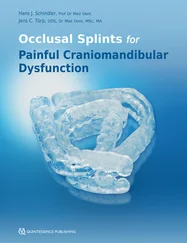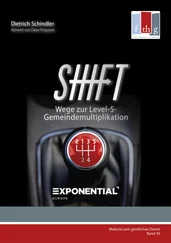It was the sort of address against which the Untersturmführer was powerless. Though Liepold was angry at it, Oskar was oblivious. As the Herr Direktor moved with the prisoners into the courtyard, there was nothing Liepold could do to break into that certainty.
The men knew. They were on the balcony of their dormitory looking down. Sternberg and his son searching for Mrs. Clara Sternberg, Feigenbaum senior and Lutek Feigenbaum looking out for Nocha Feigenbaum and her delicate daughter. Juda Dresner and his son Janek, old Mr. Jereth, Rabbi Levartov, Ginter, Garde, even Marcel Goldberg all strained for a sight of their women. Mundek Korn looked not only for his mother and sister but for Lusia the optimist, in whom he’d developed an interest. Bau now fell into a melancholy from which he might never fully emerge. He knew definitively, for the first time, that his mother and wife would not arrive in Brinnlitz. But Wulkan the jeweler, seeing Chaja Wulkan below him in the factory courtyard, knew with astonishment now that there were individuals who intervened and offered astounding rescue.
Pfefferberg waved at Mila a package he had kept for her arrival—a hank of wool stolen from one of the cases Hoffman had left behind, and a steel needle he had made in the welding department. Frances Spira’s ten-year-old son also looked down from the balcony. To stop himself from calling out, he had jammed his fist into his mouth, since there were so many SS men in the yard. The women staggered across the cobbles in their Auschwitz tatters. Their heads were cropped. Some of them were too ill, too hollowed out to be easily recognized. Yet it was an astounding assembly. It would not surprise anyone to find out later that no such reunion occurred anywhere else in stricken Europe. That there had never been, and would not be, any other Auschwitz rescue like this one.
The women were then led up into their separate dormitory. There was straw on the floor—no bunks yet. From a large DEF tureen, an SS girl served them the soup Oskar had spoken about at the gate. It was rich. There were lumps of nutrient in it. In its fragrance, it was the outward sign of the value of the other imponderable promises. “You have nothing more to worry about.” But they could not touch their men. The women’s dormitory was for the moment quarantined. Even Oskar, on the advice of his medical staff, was concerned about what they might have brought with them from Auschwitz.
There were, however, three points at which their isolation could be breached. One was the loose brick above young Moshe Bejski’s bunk. Men would spend the coming nights kneeling on Bejski’s mattress, passing messages through the wall. Likewise, on the factory floor there was a small fanlight which gave into the women’s latrines. Pfefferberg stacked crates there, making a cubicle where a man could sit and call messages. Finally, for early morning and late evening, there was a crowded wire barrier between the men’s balcony and the women’s. The Jereths met there: old Mr. Jereth, from whose wood the first Emalia barracks had been built; his wife, who had needed a refuge from the Aktions in the ghetto. Prisoners used to joke about the exchanges between Mr. and Mrs. Jereth. “Have your bowels moved today, dear?” Mr. Jereth would somberly ask his wife, who had just come from the dysentery-ridden huts of Birkenau.
On principle, no one wanted to be put in the clinic. In Płaszów it had been a dangerous place where you were made to take Dr. Blancke’s terminal benzine treatment. Even here in Brinnlitz, there was always a risk of sudden inspections, of the type that had already taken the boy children. According to the memos of Oranienburg, a labor-camp clinic should not have any patients with serious illnesses. It was not meant to be a mercy home. It was there to offer industrial first aid. But whether they wanted it or not, the clinic at Brinnlitz was full of women. The teen-age Janka Feigenbaum was put in there. She had cancer and might die in any case, even in the best of places. She had at least come to the best of places left to her. Mrs. Dresner was brought in, as were dozens of others who could not eat or keep food in their stomachs. Lusia the optimist and two other girls were suffering from scarlet fever and could not be kept in the clinic. They were put in beds in the cellar, down amid the warmth of the boilers. Even in the haze of her cold fever, Lusia was aware of the prodigious warmth of that cellar ward.
Emilie worked as quiet as a nun in the clinic. Those who were well in Brinnlitz, the men who were disassembling the Hoffman machines and putting them in storehouses down the road, scarcely noticed her. One of them later said that she was just a quiet and submissive wife. For the healthy in Brinnlitz stayed hostage to Oskar’s flamboyance, to this great Brinnlitz confidence trick. Even the women who were still standing had their attention taken by the grand, magical, omniprovident Oskar.
Manci Rosner, for example. A little later in Brinnlitz’ history, Oskar would come to the lathes where she worked the night shift and hand her Henry’s violin. Somehow, during a journey to see Hassebroeck at Gróss-Rosen, he’d got the time to go into the warehouse there and find the fiddle. It had cost him 100 RM. to redeem it. As he handed it to her, he smiled in a way that seemed to promise her the ultimate return of the violinist to go with the violin. “Same instrument,” he murmured. “But—for the moment— different tune.”
It was hard for Manci, faced by Oskar and the miraculous violin, to see behind the Herr Direktor to the quiet wife. But to the dying, Emilie was more visible. She fed them semolina, which she got God knows where, prepared in her own kitchen and carried up to the Krankenstube. Dr. Alexander Biberstein believed that Mrs. Dresner was finished. Emilie spooned the semolina into her for seven days in a row, and the dysentery abated. Mrs. Dresner’s case seemed to verify Mila Pfefferberg’s claim that if Oskar had failed to rescue them from Birkenau, most of them would not have lived another week.
Emilie tended Janka Feigenbaum also, the nineteen-year-old with bone cancer. Lutek Feigenbaum, Janka’s brother, at work on the factory floor, sometimes noticed Emilie moving out of her ground-floor apartment with a canister of soup boiled up in her own kitchen for the dying Janka. “She was dominated by Oskar,” Lutek would say. “As we all were. Yet she was her own woman.”
When Feigenbaum’s glasses were broken, she arranged for them to be repaired. The prescription lay in some doctor’s office in Cracow, had lain there since before the ghetto days. Emilie arranged for someone who was visiting Cracow to get the prescription and bring back the glasses made up. Young Feigenbaum considered this more than an average kindness, especially in a system which positively desired his myopia, which aimed to take the spectacles off all the Jews of Europe. There are many stories about Oskar providing new glasses for various prisoners. One wonders if some of Emilie’s kindnesses in this matter may not have been absorbed into the Oskar legend, the way the deeds of minor heroes have been subsumed by the figure of Arthur or Robin Hood.
The doctors in the Krankenstube were Doctors Hilfstein, Handler, Lewkowicz, and Biberstein. They were all concerned about the likelihood of a typhus outbreak. For typhus was not only a hazard to health. It was, by edict, a cause to close down Brinnlitz, to put the infested back into cattle cars and ship them to die in the ACHTUNG TYPHUS! barracks of Birkenau. On one of Oskar’s morning visits to the clinic, about a week after the women arrived, Biberstein told him that there were two more possible cases among the women. Headache, fever, malaise, general pains throughout the whole body—all that had begun. Biberstein expected the characteristic typhoid rash to appear within a few days. These two would need to be isolated somewhere in the factory.
Читать дальше












